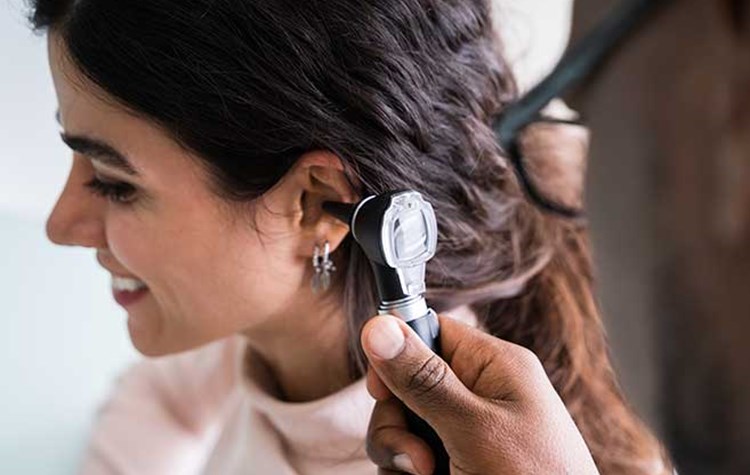Published on 15 June 2021
Middle ear inflammation (also known as otitis media) is swelling, and redness usually caused by infection of the middle ear, including the eardrum and the tissue behind. They’re most common in children, but adults can also experience middle ear inflammation.
What is inflammation of the middle ear?
There are two types of middle ear infection:
Acute middle ear infections
These appear and disappear quickly. They’re usually caused by a bacterium or virus in the middle ear causing fluid build-up which then becomes infected
Chronic middle ear infection
This is a persistent middle ear infection, usually lasting three months or more. Fluid can remain in the eustachian tubes for months and – if it’s not drained – can cause a build-up of pressure behind the eardrum. In some cases a hole may develop in the eardrum (perforated eardrum); you may notice a pus discharge and a loss of hearing.
What causes inflammation of the middle ear?
There are several causes of middle ear infections in adults:
- Bacteria, such as those that cause sinus or throat infections, that travel from the nose to the Eustachian tubes.
- Viruses such as those that cause a cold, flu, or other upper respiratory infection.
- Allergies cause swelling or blockage in the ear, resulting in fluid build-up.
- Trauma such as from a cotton bud, a blow to the head caused by falling over, off a bike or a car accident.
- Smoking, which damages the body’s tissues and can trigger inflammation.
What are the symptoms of middle ear inflammation?
You’ll most likely have a temperature, a headache or ear pain, a feeling of fullness or pressure in the ear and you may notice fluid draining from the ear.
Can middle ear inflammation cause hearing loss?
Chronic middle ear infection can cause temporary hearing loss. And while complications from middle ear infections are rare, infection can spread to another part of the ear or head causing long term damage, including facial nerve paralysis or permanent hearing loss.
How can I treat inflammation of the middle ear?
You can treat an acute ear infection at home using a hot or cold compress. Wrap an ice pack or a heat pack in a clean tea towel or run a flannel under the hot or cold tap and hold it to your ear for no longer than 20 minutes. Be careful not to burn your skin. Wipe away any discharge with cotton wool.
Try sleeping with your head in an elevated position by placing a couple of pillows under your head. It’s best to avoid sleeping on the affected side.
Take over-the-counter pain relief, such as paracetamol or ibuprofen, to relieve pain and reduce your temperature. Ask your Pharmacist for help with this.
Most ear infections clear up within a few days but, if it’s not better after 72 hours, you feel hot and shivery or you experience frequent ear infections you should arrange to see your GP who may prescriber antibiotics. If it’s due to an underlying condition such as allergy they might also prescribe treatment for that.
If your middle ear inflammation doesn’t respond to treatment, they may refer you to our expert ENT Consultants for further tests.
How do I prevent inflammation of the middle ear?
The best way to prevent ear infections are the same steps taken to prevent catching the common cold or flu. Wash your hands regularly, cough or sneeze into the crook of your elbow or into a tissue and be careful when in contact with others who show symptoms of a virus. You should also:
- Avoid pushing cotton buds deep inside your ear – they can bruise the ear canal and push wax deeper into the ear, making an infection more likely
- Avoid getting water or shampoo in your ear; dry your ears thoroughly after a bath or shower
- Use earplugs or a swimming hat over your ears when you go to the pool
- Stay away from smoky environments
Treatment for inflammation of the middle ear at Benenden Hospital
We offer a range of treatment options for chronic middle ear conditions as well as other treatments for the ear, nose and throat (ENT). Contact our Private Patient team using our online enquiry form or call us on 01580 363158.






